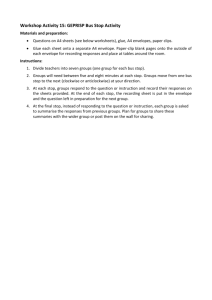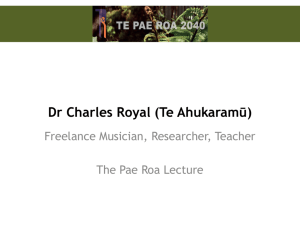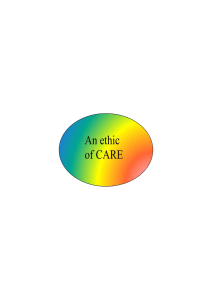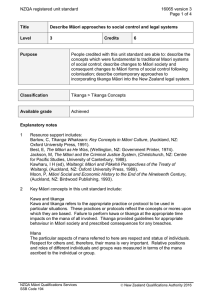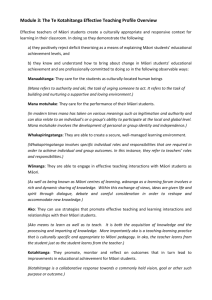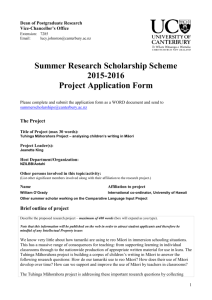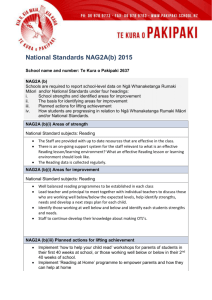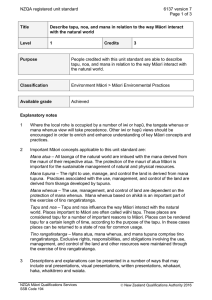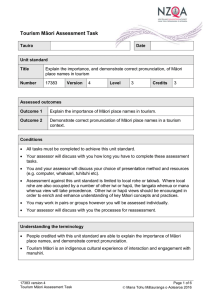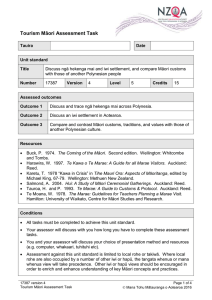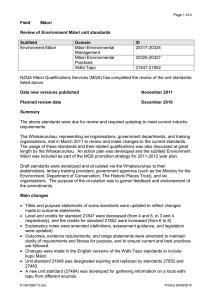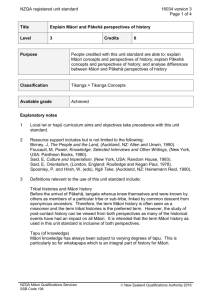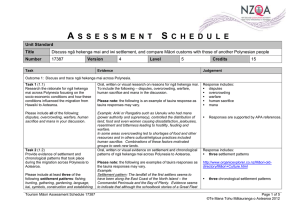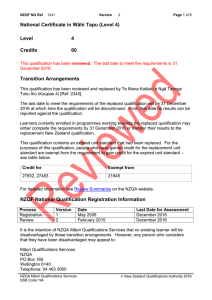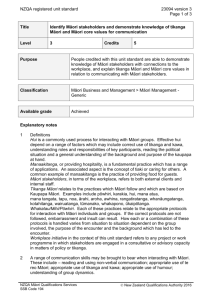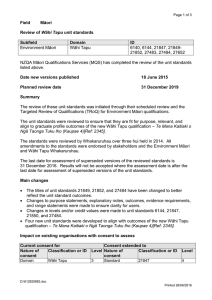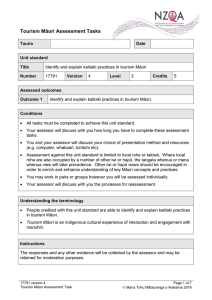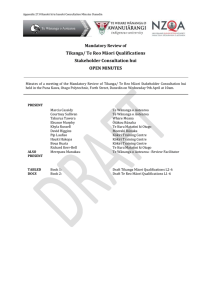Answer Sheet - Care Training Online
advertisement
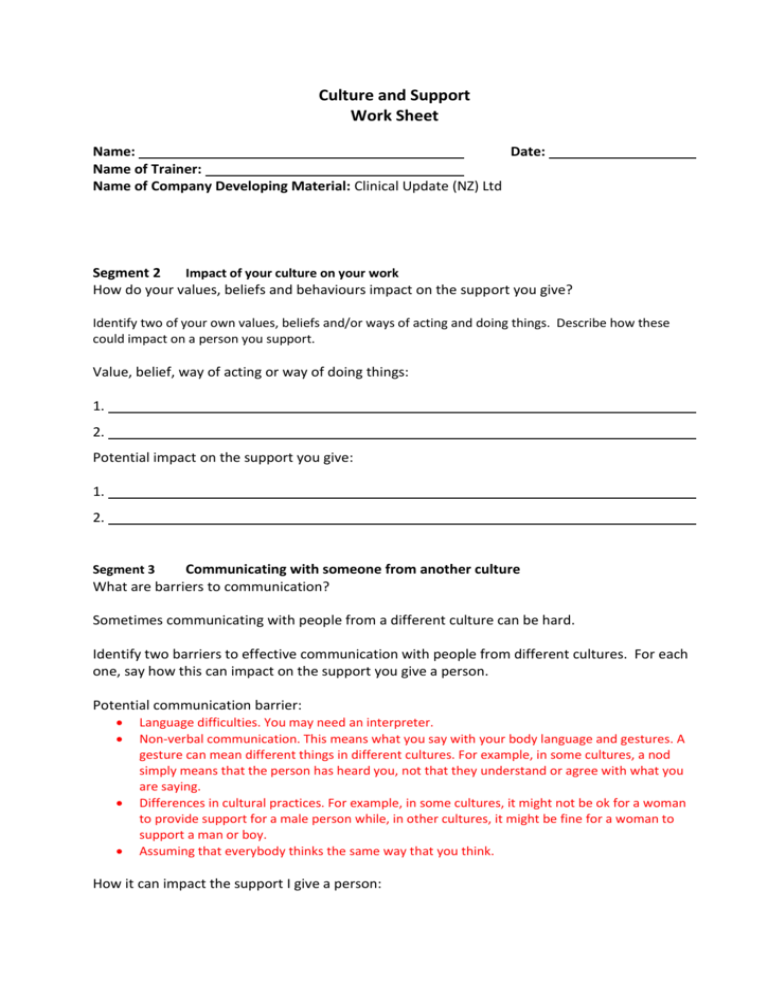
Culture and Support Work Sheet Name: Date: Name of Trainer: Name of Company Developing Material: Clinical Update (NZ) Ltd Segment 2 Impact of your culture on your work How do your values, beliefs and behaviours impact on the support you give? Identify two of your own values, beliefs and/or ways of acting and doing things. Describe how these could impact on a person you support. Value, belief, way of acting or way of doing things: 1. 2. Potential impact on the support you give: 1. 2. Communicating with someone from another culture What are barriers to communication? Segment 3 Sometimes communicating with people from a different culture can be hard. Identify two barriers to effective communication with people from different cultures. For each one, say how this can impact on the support you give a person. Potential communication barrier: Language difficulties. You may need an interpreter. Non-verbal communication. This means what you say with your body language and gestures. A gesture can mean different things in different cultures. For example, in some cultures, a nod simply means that the person has heard you, not that they understand or agree with what you are saying. Differences in cultural practices. For example, in some cultures, it might not be ok for a woman to provide support for a male person while, in other cultures, it might be fine for a woman to support a man or boy. Assuming that everybody thinks the same way that you think. How it can impact the support I give a person: 1. 2. What methods do you use to communicate well with people from cultures that are different from yours? Write down two of these methods and say how they help you support the person. Method I use to communicate with a person from a different culture: 1. 2. How it impacts on the support I give the person: 1. 2. Segment 6 Culturally safe support in Aotearoa New Zealand What does the word ‘bicultural’ mean? Bicultural means that two cultures are of equal importance in New Zealand Aotearoa New Zealand is a bicultural country. What does understanding Aotearoa New Zealand’s bicultural partnership mean for you in your role as a support worker? You work to understand the person’s culture. You help support their cultural practices. You don’t do things that will offend them culturally. Segment 7 Choose three tikanga practices. Fill in the table to describe what the practice means and how it helps you to provide culturally safe support. Some examples you may use are: Correct pronunciation of names and places. Tapu and noa. Pōwhiri. Mana. Manaaki. Tikanga practice: Pronunciation Greetings Tapu and noa Pōwhiri Mana Manaakitanga What does it mean? Pronunciation means how you say something. Using Māori greetings. Tapu means sacred, important or restricted – examples include: a person’s head, a person who has died, and the whare tupuna on a marae (the meeting house). Noa means ordinary, everyday or unrestricted – examples include: food, water, the whare kai on a marae (the kitchen or dining room), anything that isn’t tapu. These must be kept separate. Pōwhiri is a traditional Māori welcome. It usually involves whaikōrero (speeches) and waiata (songs). Mana is a traditional Māori idea. It can be translated as a combination of: honour, dignity, power, authority, control. Manaakitanga means being a kind, generous and good host to visitors. How does this practice help you to provide culturally safe support? Pronouncing Māori names correctly shows respect for Māori people and their culture. If you are working with a person with a Māori name, make sure you learn how to pronounce it correctly. Using Māori greetings in the workplace can make it more welcoming for Maori people and people who value Māori culture. You can respect tapu and noa by asking permission before you touch a person’s head, not touching a person’s head unless it’s necessary, and keeping food out of a room where a dead body is lying. It’s important that you pay attention and show respect during a pōwhiri. You can respect a person’s mana by remembering their dignity and supporting them to stay independent and in control of their lives as much as possible. You can support manaakitanga in your workplace by providing support and training for new colleagues; treating the people you support with respect and making them feel valued; treating all people fairly and equally.


